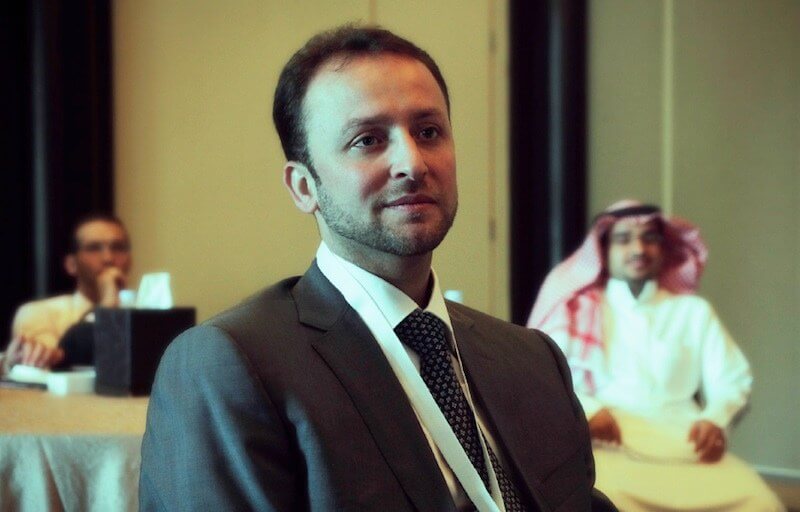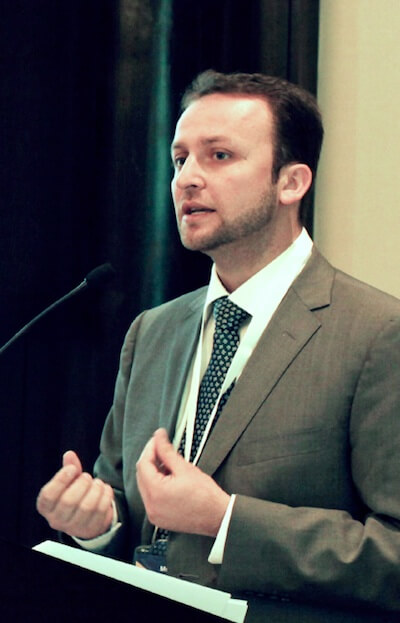Interview with Mutassem Daaboul, CEO, SAMA
In September 2005 Mutassem Daaboul joined his father’s business, the Syrian Daaboul Industrial Group, and was soon thrown into the deep end. By April 2006, Daaboul was appointed the General Manager of General Aluminium, one of the holding’s businesses in Syria and Qatar. In 2007, the company was rebranded as SAMA, and in 2011 Daaboul was appointed its CEO.
Today he continues apace as an integral part of the family business’ board alongside his brothers and father. In a company where entrepreneurial thinking is a familial tradition, SAMA’s CEO has grown heavily invested in trying to restructure the family’s business governance model which aims to implement a culture which anticipates what lies ahead for the business. Tharawat magazine speaks to Mutassem Daaboul about the inner workings of a highly entrepreneurial family business.
How important a role does entrepreneurship play within a family business?
It depends on the family and its culture. In our family, we have been raised in a way that made competitiveness our second nature. Each one of us knew that we were competing with each other for success and distinction not only within the family, but also with the rest of the world. Striving for recognition resulted in a very strong entrepreneurial spirit in our family business. In retrospect, I understand that my father designed the business in a way, which would not involve us in its core activities. He wanted us to begin something in our own right; he handed over a business unit to each of us.
He believed in my brothers and me and wanted us to have the opportunity to experiment. I was lucky because he gave me a small operation with a presence in another country. In hindsight, I know I was naïve to accept his offer! I joined on the emotional premise that I did not want to let my father down. In the meantime, there have been a lot of obstacles and a lot of accomplishments: I took over in 2006 when the turnover of the company was a mere $600,000. In 2010, I closed at around $8 million. Had it not been for the situation in Syria we would have expected this growth to go on over the coming years, since we have continued to grow in Qatar, Lebanon, and Algeria. This year we expect to close at a new record of sales.
Should young family business members be confronted with entrepreneurial opportunities?
I think it’s good for the young generation to confront it, but it should be in a planned way. If families want their next generation to be entrepreneurial then the setting should be clear-cut: Define capital and investment upfront, state objectives with a clear vision of the business. In my case it wasn’t planned at all. It was completely spontaneous. It was a very difficult experience and has, therefore, not been as positive as it could have been. I do realise how much I have learned, but I would not recommend this exact same strategy for the third generation.
[ms-protect-content id=”4069,4129″]
Does entrepreneurial spirit prevail when you are working with your family?
Well actually, in our family what prevails is a spontaneous, short-term decision making atmosphere; it’s driven by very entrepreneurial thinking. I actually try to slow down this behaviour into a more reflective approach by trying to understand the risks associated with our opportunities.
My father built this business by himself. Step by step and on his own, he got it to where it is today. Naturally, he knows how to conduct his business and he strongly feels that he doesn’t need anyone to tell him how to do it. But I still want to instill this long-term orientation into the family culture. I started by preparing a feasibility study for a project in Qatar, which was approved, yet the project didn’t go through for land availability reasons. I then prepared another feasibility study for a different location. After two or three years of repeating this procedure for different projects, I got the whole family to agree that we shall not enter into any investment unless a feasibility study is prepared and approved by the board, even if we know of or anticipate positive results.
I maintain of course my entrepreneurial skills and short-term thinking on a personal level, but on the family business level I tend to be more careful. I always reevaluate our businesses no matter how attached we are to them. Should we stay in this business or can we maybe do something better with our time and money? At different levels of the businesses, you have to maintain a different degree of entrepreneurship.

How can a family business encourage entrepreneurship?
They should spend some time with my family! No, seriously, it depends on the family’s character, environment, and how its members were educated. However, I do think that there are two things that can get the entrepreneurial spirit going: Create a grand strategy wherein family members can aspire to achieve something. This inspires them to feel the responsibility to build something, to give something to humanity, regardless of the place and ethnicity. The second factor conducive to entrepreneurship in the family business is instilling a sense of healthy competition. Not in a fierce way, but in a collective way. Where the family is competing to help each other, rather than competing for recognition. It can be competition within the family or competition with other families or other businesses. It is a sort of cooperative competition.
Is the Arab world providing context, which is particularly conducive to entrepreneurial thinking?
I believe that the context plays a huge role in creating entrepreneurial thinking. I do think that the Middle East is very different from other regions and I do hope, with all my heart that it will excel in entrepreneurship. As much as it may appear that we have entrepreneurial thinking, I still think that we’re way behind compared to other regions. Look at China for example; I’ve seen Chinese businesses prosper globally through strong and progressive thinking. I think our context and the overall culture in the Middle East is somehow slowing down entrepreneurial thinking. It is stopping us from really realising our entrepreneurial potential.
Tharawat Magazine, Issue 19, 2013
[/ms-protect-content]















